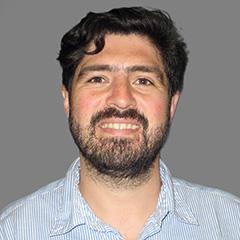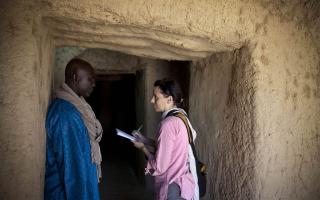Theory-based approaches to evaluation
This course has been designed for evaluation managers at World Food Programme (WFP) interested in exploring when using a theory-based approach to evaluation is most useful and relevant to answer key evaluation questions. The training is in line with the norms and standards of the United Nations Evaluation Group (UNEG), and tailored to the context of WFP.
In 2022, United Nations System Staff College (UNSSC) and the WFP Office of Evaluation launched a certification scheme for evaluation, targeting WFP’s evaluation cadre in the form of micro-credentials. To read more please click HERE. The "Theory-based approaches to evaluation" course is a part of this new initiative and aims to enhance the capability of evaluation managers to use a theory-based approach in their evaluation.
Upon successful completion of the course, participants will be able to:
- Define a theory-based approach in evaluation;
- Review a theory of change (ToC) to check that it is suitable for theory-based approach to evaluation;
- Use a ToC to develop evaluation questions which are specific to the context and the intervention;
- Verify that the evaluation design will allow the testing of the TOC to assess whether and how an intervention contributed to results;
- Review a draft evaluation report to determine if the TOC was used consistently and appropriately.
The course includes a range of synchronous and asynchronous activities. This approach ensures that participants not only gain solid knowledge and skills but also apply them.
Each module consists of:
- Selected readings, videos and discussion forums where participants consolidate and reflect on learning through the creation of micro-content (multimodal forum replies, etc.);
- Live thematic sessions with led instructor;
- On the job guided practice where participants can apply the knowledge acquired in the micro-credential.
Instructor-led webinars will be conducted on Zoom. Participants need a computer (or mobile device), a reliable internet connection and either a headset with a microphone to connect to the audio through a computer, or a telephone. We recommend accessing audio through your computer. No special software is required, but participants must be able to access Zoom. UNSSC will send access instructions to registered participants, and we recommend that you download the application and test your setup in advance.
The asynchronous component is designed and structured on UNKampus, one of UNSSC's online learning platforms.
The micro-credential is composed of three thematic modules:
- Module 1: Introduction to Theory-Based Approaches (TBA) to Evaluation
- Module 2: Quality Assuring A Theory-Based Evaluation Design
- Module 3: Quality Assuring A Theory-Based Evaluation Final Report
Evaluation Managers at WFP.
The requirements to enter into this micro-credential are the following:
- The completion of the micro-credential on Theories of Change. OR
- Basic knowledge about theories of change, including:
- Defining what a theory of change is, its key elements and how they fit together;
- Why and when to use a TOC for different evaluation purposes, including testing underlying assumptions and the causal chain between outputs and outcomes;
- What is a nested TOC and when it is useful to have one;
- How to construct and reconstruct a theory of change for evaluation purposes.
The requirements to enter into any of the micro-credentials are the following:
For M&E Officers working on decentralized evaluations
- Completion of the WFP Evaluation Learning Programme course on How to Manage a Decentralized Evaluation
- Experience as evaluation manager in at least one evaluation in WFP or another entity
For Evaluation Officers
- Experience as evaluation manager (or experience as research analyst substantively engaging in and supporting the entire evaluation process) in at least one evaluation in WFP or another entity
This course is offered to WFP staff only.
Applications will be carefully reviewed and only nominated participants will be contacted.
Free




